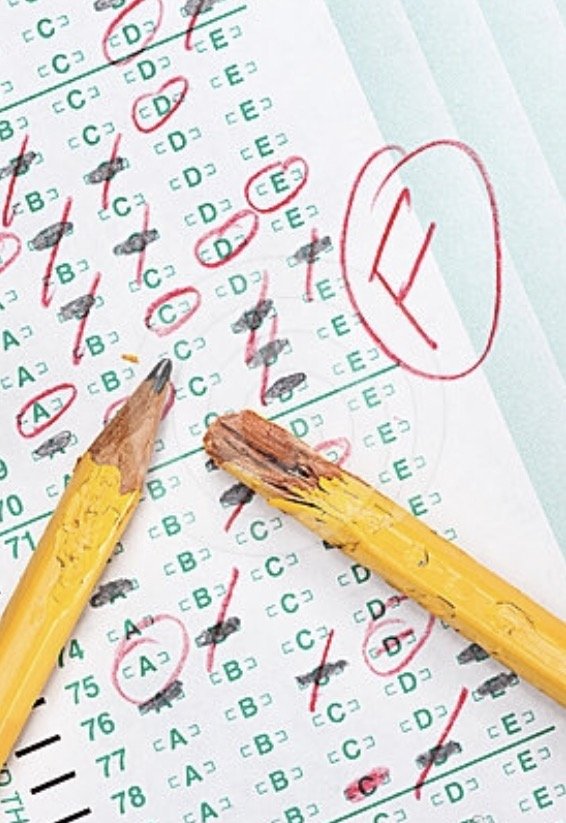How to Improve Your Premed GPA So You Can Become Competitive for Med School

Are you a hard working premed student but feel your grades are not a true reflection of your abilities in the sciences?
You are doing everything asked of you but your premed GPA shows otherwise.
Are you copying down all the sample problems, working out problems on your own but when you get to the test you draw a blank and don’t know where to begin?
You’ve been to office hours, met with your professor and the TA and the only help they can offer is to read more, do more problems and it just takes time for the material to stick?
Are you concerned because every exam seems to be hit or miss where sometimes you barely pass and others you fail by a few points? What gives, it’s a complete crapshoot.
Maybe you have a sinking feeling in the pit of your stomach every time you log in and check your transcripts because you realize your premed GPA is in the toilet and how the heck are you supposed to get into medical school with such low stats.
If so, I totally understand.
Being Premed Is Hard And You're Not Alone
I want you to know that you’re not alone.
That’s because I met with hundreds of premed students just like you who are struggling to do well in their coursework. They tell me they’re lost, confused but will do whatever it takes to get into medical school.
They just need one chance to show AdComs they have what it takes and should not automatically be rejected just because of their numbers.
Let me tell you about Peter. He was a senior in college and was failing Biochemistry a class he needed to pass so he could graduate from college. Peter told me he had already failed his first two exams of the semester and was really in a pinch.
Peter experienced the same academic issues you’re currently struggling with but now he is ahead in the class - to his professor’s surprise and is all set to graduate on time. If he can turnaround his grades, I know you can too.
Want to know what I taught Peter to help him go from failing Biochemistry to the head of the class?
Common Pitfalls That Will Trip Up Your Premed GPA

One of the biggest issues students struggle with is time management and procrastination. These two actually go hand-in-hand. If you aren’t doing well academically you suddenly find ways to avoid studying.
Maybe you’ve even said, “What’s the use,” and decided a Netflix binge is needed to purge your mind.
This then leads to a vicious cycle where you fall farther behind in class and there’s practically no way out.
Each week has 168 hours and whether you’re an A student or C student you all have the same amount of time each week. What I found is the A students are ruthless when it comes to time management.
Over 50% of your academic struggles can be solved with time management alone.
Think I’m full of it, try me.
I want you to make a schedule for the upcoming week. But this isn’t just any schedule. Put in everything you have to do for the week:
- Class
- Appointments
- Food
- Sleep
- Personal Hygiene
Then add in your social activities including fun events with friends.
Next find all the holes in your schedule and mark down what subjects you can study with the free time you have.
If you do this alone I promise you will see an uptick in your grades.
You can only work so hard.
Personally, I think working hard is dumb. You’ve already sacrificed everything and have nothing to show for it by looking at your premed GPA.
You need to study smart and not hard.
No one cares how long you studied. AdComs only want to know your cumulative GPA, your final grade. There are no extra points awarded because you spent more time pouring over problems.
Don’t fall for this trap that the only way to excel academically is to be constantly studying.
It’s more important how you use your study time.
You have to be laser-focused and know what objectives need to be accomplished.
Do you know how I know if you won’t do well academically?
If after a long day of studying where you were working very diligently, working hard, saying no to all distractions but then when I ask you to teach me a concept you supposedly studied but you can’t then I know you weren’t studying smart.
Don’t feel bad, no one has ever told you this so it’s not your fault.
You cannot change the past, you only have now and the future. So let’s shore up the gaps in your knowledge so you can zoom to the top of the class with an improved premed GPA.
Let’s not forget about problems.
Why is it that when you walk into your exam all the problems seem foreign and unfamiliar?
These problems that seem to come from left field aren’t designed to trick you. Instead, it’s a test to see if you truly understood what was taught to you.
Too many students never understand the basic foundation of problems and then are blown away on their exams when the professor makes subtle changes that will catch the unassuming student off guard.
Peter was a victim to these common academic pitfalls too when he first reached out to me for help.
To improve your premed GPA you need high yield study skills.
Going from a Failing GPA to Setting the Class Curve

When you use High Yield Study Skills you’ll start understanding the underlying concepts behind any test question meaning you won’t be confused on your exams. You will be able to effortless navigate the land mines found on every exam and you’ll be one of the students walking out of the exam without breaking a sweat.
This is all because you finally made the transition to studying smart and not hard and you’ll be rewarded with better grades and a premed GPA that’s competitive for medical school.
When Peter began approaching his studies with a laser-focus, success was practically guaranteed. Within three weeks of our session Peter let me know he had successfully passed two exams and his professor was shocked at his come from behind story.
Seriously, if you’ve been failing all along and then suddenly you have mastery of your course material your professors will take notice.
Peter, is very happy now that the course is over and what looked like a situation where he may not have graduated is not a distant memory.
Not only have I helped Peter, but over the years there have been over 300 students I’ve helped get similar results by using this method.
If you would like to discover the step-by-step process that struggling premed students are using to finally get ahead academically even if coming to office hours and tutoring hasn’t helped in the past then take a look at my High Yield Study Skills Tutoring Program.
These are the 5 steps that I teach my students, so they can not only pass their classes but finally have the stats that will make them competitive for getting into medical school.
If you’d like to discover how each step works and more about how you can apply this, then click to get Video samples which reveals the process you can follow.
Ready to Change Your Premed GPA for the Better?
You’ve procrastinated in the past and how has that worked for you? Take action now because we’re talking about your medical school future.
Either you want to get into medical school or you don’t.
Exams, finals and grades must be your number one priority because if you don’t have the numbers nothing else in your application matters.
Did you know?
AdComs use computers to screen applicants based on their MCAT score and GPA. Meaning if you don’t meet their minimum cutoff requirement your application is automatically rejected before any human ever sees it.
Kinda, explains why the medical school rejection rate hovers at 60% so if you were banking on your extracurriculars, personal statement and LORs to get you over the hump or even explain deficiencies in your academic record you won’t be given that chance.
Think about it… you can keep doing what you’ve been doing, and struggle with coming up short on your exams which will negatively affect your GPA that AdComs weigh when making an admissions decision.
Or, you can learn more about High Yield Study Skills and discover how premed students who have been at the bottom of their class are earning top grades and confident they will now be competitive applicants for medical school.